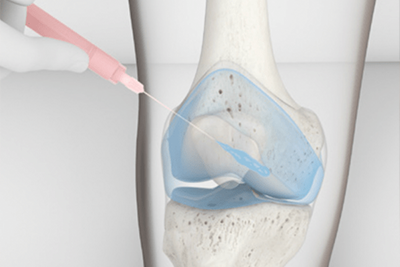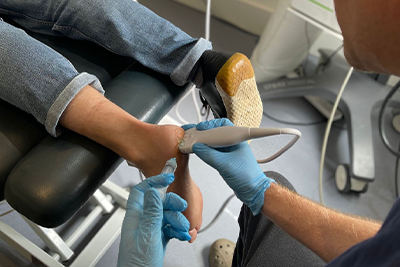Erectile Dysfunction (ED) is a common medical condition that affects a significant number of men worldwide. It’s the persistent inability to achieve or maintain an erection sufficient for satisfactory sexual performance. The topic often remains shrouded in silence despite its prevalence due to associated stigmas and misconceptions.
Understanding the prevalence and risk factors of ED goes beyond mere statistics. It is an integral part of promoting men’s health, breaking down barriers to communication, and helping individuals better understand this condition. Moreover, recognising the risk factors for ED can guide prevention strategies, help identify individuals at risk, and inform healthcare providers about the need for screening and treatment.
Understanding Erectile Dysfunction
Erectile Dysfunction (ED) is a common but often misunderstood health issue. It’s the consistent inability to achieve or maintain an erection sufficient for sexual intercourse. ED can occur occasionally due to stress or other temporary factors, but when it becomes an ongoing issue, it can cause distress, affect self-confidence, and lead to relationship problems.
The impact of ED on a man’s quality of life is profound and multifaceted. It can decrease sexual satisfaction, cause significant psychological distress, and adversely impact relationships. Men with ED often report feelings of inadequacy, embarrassment, and a reduced sense of masculinity. The condition can also contribute to mood disorders such as depression and anxiety.
Erectile Dysfunction is not merely a sexual health issue. It often serves as a barometer for a man’s overall health. There’s a strong link between ED and specific health conditions. Cardiovascular disease, diabetes, and hypertension, for instance, are commonly associated with ED. This is because these conditions can affect blood flow, a critical factor in achieving and maintaining erections. Furthermore, men with ED are more likely to experience mental health issues, particularly anxiety and depression. In many cases, ED can be the first sign of a more serious underlying health condition.
Overview of ED Prevalence in the UK
The 2018 study conducted by Viatris, Queen’s University Belfast, and Pfizer provides a comprehensive look at the prevalence of ED in the UK. According to their research, an estimated 41.5% of men in the UK reported experiencing ED. This finding underscores the widespread nature of the condition and highlights the need for more open conversations and effective treatment strategies.
The prevalence of ED was also found to increase with age. Among men aged 18-39, the prevalence was around 29.3%. However, this percentage jumped significantly to 45.6% for men aged 40 and over. This is consistent with research worldwide showing that ED is more common in older men, though it’s important to note that it can affect men of all ages.
The study further revealed geographical variations in ED prevalence within the UK. For example, Wales reported the highest prevalence rate, with 44.3% of men reporting ED. Although the reasons for these geographical variations aren’t entirely clear, they might be influenced by regional factors such as lifestyle, accessibility to healthcare, or provincial health policies. This highlights the importance of region-specific strategies in addressing and managing ED.
Risk Factors for Erectile Dysfunction
Several lifestyle choices can increase the risk of developing ED. Among them are smoking, excessive alcohol consumption, and obesity.
Smoking can damage blood vessels, impairing the blood flow necessary for an erection. Similarly, heavy alcohol consumption can lead to temporary or long-term ED, causing hormonal imbalances and nerve damage.
Obesity, especially when it leads to heart disease and type 2 diabetes, can contribute to ED. Maintaining a healthy weight through diet and exercise is crucial in preventing ED.
Various medical conditions also increase the risk of ED. These include high blood pressure, high cholesterol, and diabetes.
High blood pressure and high cholesterol can damage blood vessels, including those that bring blood to the penis, leading to ED. Diabetes, especially when poorly controlled, can damage nerves and blood vessels, including those related to sexual function.
ED can also be linked to psychological factors. Conditions like anxiety and depression can cause or worsen ED. In some cases, the worry over not being able to achieve or maintain an erection can lead to a form of performance anxiety that results in persistent ED. Moreover, men dealing with ED often experience psychological stress, leading to a vicious cycle of ED and emotional distress.
The Rising Prevalence of ED in the UK
Recent research underscores the escalating problem of ED in the UK. According to a 2021 study published in BJU International, ED now affects up to one in five men across the country – a total of approximately 4.3 million men. This significant number indicates an upward trend that needs to be addressed by healthcare professionals and policymakers alike.
The study further highlighted the prevalence of ED compared to other prominent health issues. Astonishingly, ED has become more common than heart disease and cancer among men aged 40-70 in the UK. This underlines the need to take ED seriously as a public health issue, not merely as a sexual or lifestyle problem.
Various factors are contributing to the rising prevalence of ED in the UK. Ageing is a notable factor, given that ED is more common in older men. However, unhealthy lifestyle choices – such as poor diet, lack of physical activity, smoking, and high alcohol consumption – are also key contributors. Other factors include the increasing rates of obesity and chronic health conditions such as diabetes and cardiovascular disease. Finally, the growing awareness and decreasing stigma around ED might also lead to increased reporting of the condition.
Implications of the Prevalence of ED
Erectile dysfunction is not just a condition that affects men’s sexual health. It can also be an early warning sign for serious underlying health problems. Conditions like cardiovascular disease, diabetes, and even mental health disorders like depression can manifest early symptoms as ED. Therefore, it’s crucial not to dismiss ED as a part of ageing or a source of embarrassment. Instead, it should be viewed as a potential indicator of systemic health issues requiring medical attention.
Given the prevalence of ED and its links to other health conditions, it’s essential for men experiencing symptoms to discuss their concerns with a healthcare professional. Unfortunately, due to embarrassment or stigma, many men avoid seeking help for ED. However, discussing ED openly with a healthcare professional is the first step towards diagnosis, treatment, and the potential identification of other health risks. There are many effective treatments for ED, and early intervention can improve outcomes and quality of life. The growing prevalence of ED in the UK underscores the need for increased dialogue, reduced stigma, and proactive healthcare engagement.
Treatment Options for ED
A wide variety of treatment options are available for ED in the UK. These range from lifestyle modifications, such as diet and exercise, to medication, therapies, and surgical procedures. Prescription medications are often the first line of treatment. For those who cannot use or do not respond to these medications, other treatments like vacuum erection devices, intraurethral suppositories, P-Shot, TRT, shockwave therapy and surgical procedures may be an option. Each treatment approach has benefits and drawbacks, and the right choice varies depending on individual circumstances and overall health.
Treating ED early can significantly impact a man’s quality of life. It not only improves sexual function but can also boost self-esteem, reduce stress and anxiety, improve relationships, and contribute to overall well-being. In addition, early treatment may help address the underlying health conditions often accompanying ED, such as heart disease or diabetes. Given the variety of treatment options and the potential benefits, men with signs of ED must seek medical help as soon as possible. It’s never too early to improve your health and quality of life.
Recap
Erectile dysfunction (ED) is a significant public health issue affecting millions of men across the United Kingdom. With a prevalence rate exceeding that of heart disease and cancer in men aged 40-70, it demands our attention and action. ED is more common as men age, but it’s also tied to various lifestyle and medical factors such as smoking, alcohol consumption, obesity, high blood pressure, high cholesterol, and diabetes. Moreover, psychological elements such as anxiety and depression can contribute to ED.
Remember that you’re not alone if you’re among those struggling with ED. There’s no need to suffer in silence or let embarrassment stop you from seeking help. It’s important to understand that ED is a medical condition like any other, and effective treatment is available. Reach out to a healthcare professional to discuss your concerns openly. Remember, early treatment not only can improve your sexual health but also may help to uncover and manage other underlying health conditions. You can enhance your quality of life and health with the proper treatment and approach.
Related Articles
- TRT: Understanding Testosterone Deficiency and the Role of Hormone Replacement
- Shockwave Therapy as a Treatment for Erectile Dysfunction
- P-Shot Treatment for Erectile Dysfunction
- Erectile Dysfunction and Underlying Health Conditions
- Psychological Aspects of Erectile Dysfunction




























